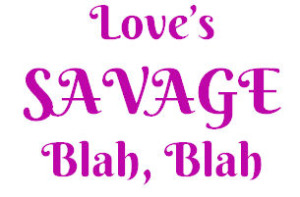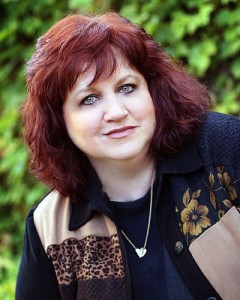 There are a lot of differences between us indies and those who are traditionally-published, not the least of which is the fact that we have to do (or at least arrange for someone else to do) everything involved in publishing and promoting our books. Traditionally-published authors have some or most of that all done for them, although the loss of creative control and the quality of those tasks might take some of the joy out of being cared for. Some indies might bemoan the fact that they have to wear ten hats and take care of all the aggravating details when they’d rather be locked in a room writing. Our RJ Crayton wrote about the miseries of self-publishing not long ago. Clearly, it’s not for everyone. For me, however, it’s the perfect blend. Continue reading “The Joy of Being an Indie Author: Using the Brain to Best Advantage”
There are a lot of differences between us indies and those who are traditionally-published, not the least of which is the fact that we have to do (or at least arrange for someone else to do) everything involved in publishing and promoting our books. Traditionally-published authors have some or most of that all done for them, although the loss of creative control and the quality of those tasks might take some of the joy out of being cared for. Some indies might bemoan the fact that they have to wear ten hats and take care of all the aggravating details when they’d rather be locked in a room writing. Our RJ Crayton wrote about the miseries of self-publishing not long ago. Clearly, it’s not for everyone. For me, however, it’s the perfect blend. Continue reading “The Joy of Being an Indie Author: Using the Brain to Best Advantage”
Tag: author creative control
The Issue of Self-Publishing Control: Book Titles
 Control: I believe that is the best aspect of self-publishing. Sure, in the discussions that rage endlessly across the internet about trad-publishing vs. self-publishing, the major issue always seems to revolve around money. Yes, we get better royalties when we self-pub. When my first book was published by a NY house, my royalty rate for the first 100,000 books sold was ten cents per book. You read that right: ten cents. After that, it “jumped” to twenty-five cents. Continue reading “The Issue of Self-Publishing Control: Book Titles”
Control: I believe that is the best aspect of self-publishing. Sure, in the discussions that rage endlessly across the internet about trad-publishing vs. self-publishing, the major issue always seems to revolve around money. Yes, we get better royalties when we self-pub. When my first book was published by a NY house, my royalty rate for the first 100,000 books sold was ten cents per book. You read that right: ten cents. After that, it “jumped” to twenty-five cents. Continue reading “The Issue of Self-Publishing Control: Book Titles”
Ten Reasons Why I am Self-Publishing (Part 2) by Jordan Dane

I hope you saved room for a nice juicy steak. Part two of my post will cover the meaty reasons why I am self-publishing and building my virtual shelf. Point #6 deals with publishing industry contractual terms—something I didn’t know before I sold, but am dealing with now years later. Don’t get me started on Rights Reversion language. Oh, wait. That’s exactly where we’ll start. (If you missed Part One, you can read it here.)
6.) Control of Your Book Rights –Subsidiary Rights, Foreign Rights, and Reversion Rights. Retaining control of your digital rights (for e-books) and not have them tied up for years after your book is released is a HUGE benefit. The current contract language for e-books is lumped in with print book definitions. Makes no sense that digital books would have ANYTHING to do with print books, but most publishing contracts have these definitions lumped together in one clause or another (ie. “out of print” definitions and rights reversion language). Some of you may not know this or realize the impact until you try and get your backlist rights back, only to realize your house can keep rolling their rights to your work for years. This can be a nightmare. This is a HUGE reason for an author to self-publish, or at the very least, push to define e-books separately and not link the contractual terms to that of print book definitions. Why can’t e-book rights be limited to 2-3 years and stop? Why must an author ask for permission for rights that should automatically revert back to them and undergo a lengthy process over another 12-18 months where their digital rights are tied to royalty statements and definitions of books in print? Foreign rights can be lucrative too if your agent works this angle and shops them aggressively. Who knows? Maybe you both can shop those foreign rights on your next trip to France. Road trip! Continue reading “Ten Reasons Why I am Self-Publishing (Part 2) by Jordan Dane”
Ten Reasons Why I am Self-Publishing (Part 1) by Jordan Dane

I’ve been living my dream to write since 2006 when I sold in auction to HarperCollins. Lightning struck me square between the eyes and I liked it. I sold three books that Harper planned to release back to back in 2008 and while I waited for my debut launch, I sold three more books to them. Yep, six books sold without one being on a shelf. Now I have my Sweet Justice adult thriller series for HarperCollins and I also write Young Adult fiction for Harlequin Teen. My HUNTED series will be coming out 2012-2013.
I’m sharing these choice tidbits for three reasons. One—I like seeing it in print. Two—I like reading it in print. (I’m still pinching myself that this really happened at all.) And three—I want to share why I recently turned down an offer from another Big 6 house in favor of self-publishing. I’ve taken a very big leap into a new abyss, but with my accounting and marketing background from my former career in the energy industry, I couldn’t let my ego keep making business decisions for me. Not when I had choices.
The publishing industry isn’t like it used to be. But as I stand on the precipice of a brave new world, I wanted to share my reasons to self-publish. It’s an exciting time for authors, whether you are traditionally published or not. Continue reading “Ten Reasons Why I am Self-Publishing (Part 1) by Jordan Dane”
